If you’ve ever needed a medical record of yours, you know how difficult it could be just accessing your own medical records. Where can I get my medical records is a common question that often creates a lot of hassle; which is why we made a guide for finding your medical records and monitoring them. It is becoming increasingly easier to find your medical records online, with the power of the internet and information technology.
Here I will discuss some steps you could take to help you find old medical records, as well as some easy ways to stay on top of your medical records. Having access to your medical records, especially online, will make using digital health solutions like having an online doctor consult which we wrote about here a lot more useful for patient and doctor. It can also help in emergency situations. For example the MedManage medication management app (shown below) lets you store a comprehensive list of your active and past medications right in your pocket, which can be critical for an emergency responder to be aware of immediately.
By having access to your medical records, a lot of time and energy can be saved in the future, so it is a good idea to start now. Currently in the United States over 90% of doctors and hospitals use electronic medical records. The advantages electronic medical records provide include allowing them to be shared easily, with the patient or other healthcare providers. While it isn’t technically difficult in today’s world to access your personal electronic medical records and history, if you are not informed on how to set yourself up for success it can seem a lot harder than it is. If you’ve ever need to ask “can I get a copy of my medical records”, it will be a lot easier to answer if you planned ahead. With a little preparation you can easily stay organized, informed, and engaged with your health.
Find my medical records online
My medical records online
Many of us don’t realize but most of our medical records already exist online, we just aren’t good at accessing them yet. This is partly the fault of healthcare providers and electronic health record (EHR) systems for not really putting in much effort to make sure we know how to access them. It is hard to blame doctors for this since they are very busy people and the EHR companies get paid by the doctors (not us) so it makes sense that patients and consumers aren’t their first priority. While the healthcare providers and EHR systems could make it easier for patients to access their records, it is also on the patients to make an active effort keeping themselves in the loop.
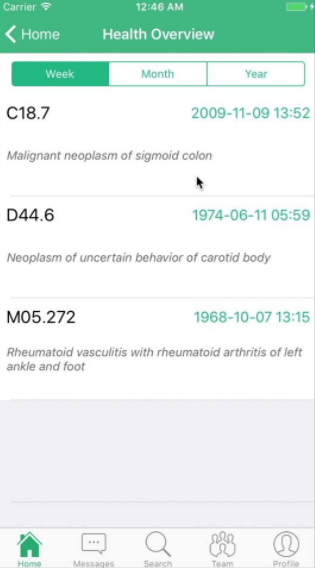
This mobile enabled patient portal shows how easy it can be to access your medical records.
Patient Portal
Patient portals are secure online websites that give patients convenient internet access to their medical records 24/7. Online patient portal medical records are very important in accessing your own medical records. Whether a large hospital or an independent doctor’s office, each healthcare provider often has their own patient portal for the data and records created at their facility. The real benefits electronic medical records provide in accessing our medical history are exemplified by the patient portal. Patient portals are often included in the EHR systems that doctors and hospitals use and are a major key in accessing your own medical records.
HIPAA, Confidentiality, and Consent
HIPAA is the Health Insurance Portability and Accountability Act of 1996. This was a law passed to ensure health institutions all over the country protect their patients information with privacy and security. It sets up guidelines and procedures for handling medical records, and making sure personal health information is shared properly. HIPAA requires healthcare providers to receive your consent before releasing health information, as well as to verify your identity.
If I want to find my medical records online, I NEED to set up my patient portals with my providers. This is because your health and medical data is confidential due to HIPAA law regulating what your doctor can and can’t do with your personal health information. By creating a patient portal you allow doctors to verify your identity and give you secure access to those records. It makes sense that you can’t just Google ‘find my medical records online’ and they show up (you wouldn’t want them to). That is why it is important to have a patient portal setup so you know where to look when you want to get medical records online.
Advantages of Electronic Health Records and Patient Portals
Electronic health records and patient portals exist to reduce the paperwork and time doctors have to spend when dealing with patient medical records including requests for copies. While not all doctors are sold on the need for electronic health records, patient portals are shown to increase patient satisfaction of healthcare providers who actively use them.
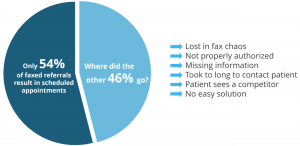
Electronic records are a way for healthcare providers to cut down on paperwork such as sending faxes.
Most healthcare providers have patient portal tools available to them through their electronic health record systems. Setting up a portal for each patient can be as big hassle as dealing with paper records, but the setup usually needs to be only done once. The benefits of patient portals to the doctor come from the patients who are going to want to access their records more than once or twice, or hold unto the copies of their history themselves.
Electronic health records allow patient information to stay organized in one location digitally and using patient portals to be easily accessed from anywhere. Even if you don’t think you will ever want to access your records more than once or twice, it is still a great idea to request your doctor sets one up for you. It is impossible to predict when you’re going to need access to your medical records and how much hassle you can avoid, so I would recommend everybody request a patient portal login from at least their primary care doctor and hospital.
Medication History and Lab Tests
Now that you know where to find medical records online, your patient portal, we will look at how to lookup your medication history and lab results. Doctor and hospital EHR systems do a good job for the most part of including your prescriptions, as well as lab report data in patient portals. So, if you are monitoring your doctor’s office and hospital portals, you already likely have access to this information accessible there. This is not guaranteed though and it might be a good idea to take some extra steps to make sure you have these records.
Prescriptions
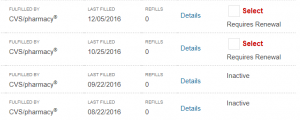
CVS and other major pharmacies let you connect online to your medications.
Since electronic health records made it easier to transfer and share medical records between providers the basic concept of electronic records spread from hospitals and doctor’s offices to pharmacies.The process for checking your prescription history is very similar to logging into an EHR patient portal. While this trick won’t work for every pharmacy, it does work for the major pharmacies such as Walmart, CVS, Walgreens, and Rite-Aid.
All you have to do is go on the website of your pharmacy, create a login, and verify some personal information.
The portals of these pharmacies often work retroactively. For instance, my pharmacy, CVS, lets me see my medication history going back 24 months from when I made my account. Despite this, I would still make an online account proactively to ensure I have the right access when I need it. If you use a small local pharmacy you might be out of luck but it would still be worth asking if they have a patient portal feature available, since electronic health records make it possible for even small pharmacies to be connected.
You can also use an app such as the medication reminder alert app MedManage to connect to some major pharmacy systems and pull your data from them. This can be especially useful if you use more than one pharmacy. Besides storing your medication history and providing medication reminders MedManage also comes with a medication history log that can be remotely monitored by family members and caregivers; and connects to the Medidex FDA drug label warnings and side effects reference database.
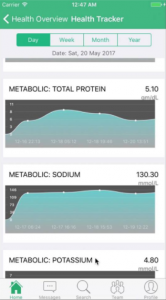
Mobile enabled online lab test results.
Lab Results
To check your lab results online can also be easy. Setting up an online account beforehand will go a long way to having access to your lab results online when you need them. By far the biggest lab test providers in the United States are Labcorp and Quest Diagnostics. If you are getting a lab test done, it will probably be at one of these two places. Luckily (just like your doctor’s office, hospital, and pharmacy) they allow patients to create an account and verify their identity online on their websites, which will allow you to check your lab results online without going in to see your doctor. Using online lab results can save you and your doctor a lot of time and inconvenience.
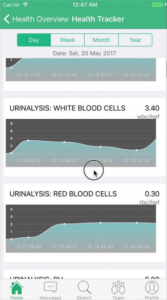
Mobile enabled online blood test results.
Where can I get my medical records?
Step by step instructions
1. Ask your primary care doctor or general practitioner office to set you up a patient portal. This will be a secure website you can access with login credentials the office provides for you.
a. If you regularly see more than one doctor make sure to get a patient portal setup with each doctor (sometimes it can be the same login but sometimes it can’t).
2. If you’ve been to a hospital contact them and have a patient portal setup there as well using your identifiable personal information. Often, hospital visits generate lots of important medical history and it would be a good idea to have access to those records.
3. Make an online account at your respective pharmacies website (CVS, Walgreens, Walmart, Rite-Aid, etc.) and verify your personal information.
4. Make an online account with the two major medical testing laboratories Labcorp and Quest Diagnostics.
5. Make sure you hold unto or remember your login credentials or you won’t be able to access your records on demand!
That’s it, with a couple online accounts’ setup beforehand, you find your medical records online very easily whenever you need to.
Thanks for reading and feel free to contact me at sg@themedidex.com if you have any questions.


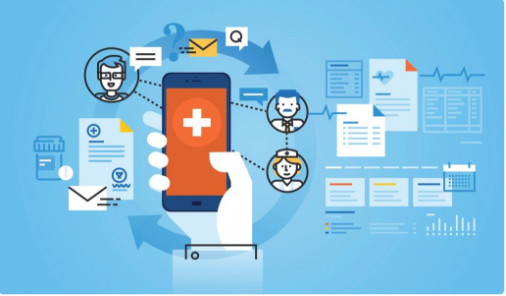
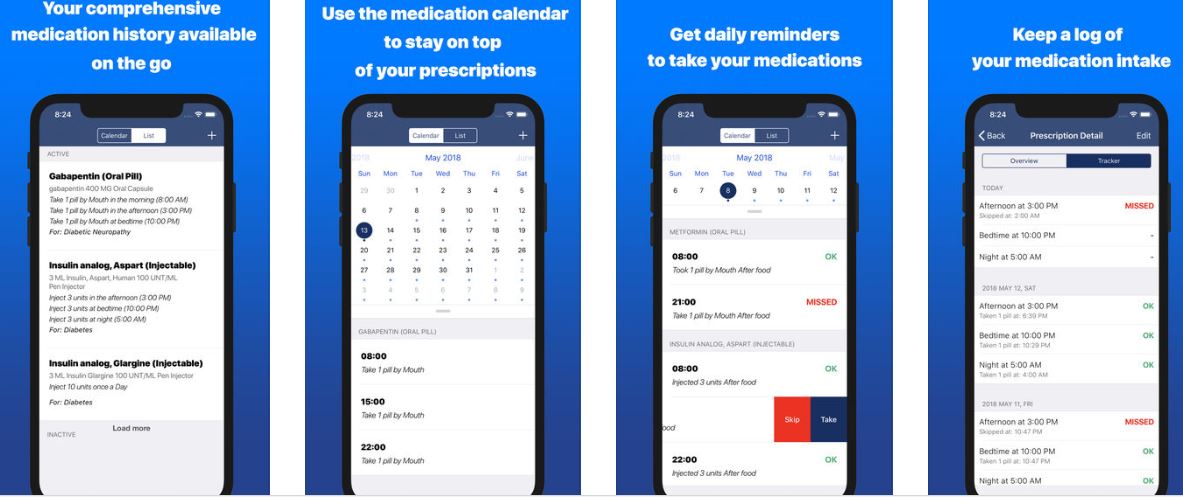
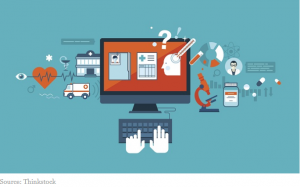
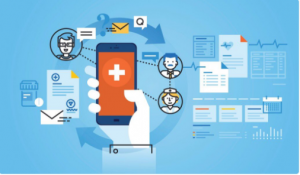

I’ll definitely be looking into this a bit more. I find it so annoying to always be keeping paper records all around my house. Whenever I need something, I can’t find it. And why should I have paper lying around when it can be secure online? Thanks for the insightful article!
Yes thats true, there are actually some new tools coming out to help you do this easier. I will be posting about them soon, and update this article as they come out.
Absolutely great topic, and great information. It is something that people should be made more aware of. I’m not sure how it would work here in Australia but I will be taking the time to find out, as this information is crucial, for everyone to have within their reach.
Thank you for the comment, this is the first of a series of steps I am going to make guides for to streamline the process. I will try to also research on how to incorporate global health systems and not just how it works in America, to include that info as well.
Great read. Being a Marine vet all of my records are stored digitally but I can access them through their online portal which includes messaging to my primary care provider and ordering medications. However no system is perfect and I know that. I just don’t beat myself up chasing after all the red tape. Lol. I usually just go fishing. Nice well written article here.
Yea the changes to healthcare system bring about new good things, but come with their own problems as well. It is good you have access to your portal already, soon I think it will be easier to migrate all of our information to our own personal health portal (maybe even an iPhone default app), and just having an online portal is an important first step.
Wow, this is great. Thank you. Is this just a US thing do you know as I live in the UK? Funnily enough I used to work in the healthcare industry making information videos and I remember making one about how useful email would be for doctors! That just shows my age and how things have changed in 30 years! Thanks for the information.
Yes technology has definitely come a long way, but we still have a long way to go! We can definitely envision a future where it is easier to interact and communicate with and within our healthcare systems.
Actually, yes you can do the same thing in the UK! Most doctors in developed countries like the US/UK use Electronic Health Record (EHR) systems now, which often have built in patient portals. So you can definitely ask your GP if they have this and can get you access to it. Since you guys have the NHS you could be in luck, since even without having a patient portal the NHS tries to keep health records of all citizens. You can request these officially from your GP (but most will just direct you to the patient portal).
In theory, the NHS should have a centralized database that every citizen could access but in practice this is still rudimentary and not much more centralized than the US system so the process is basically the same as I laid out. Just like in the US though, it is the law to provide a patient their medical records and/or history upon request, so if you ask your GP they technically can’t turn you down and will often direct you to their portal systems.
Hello Simon, I am so thankful I stumble upon your site. My husband has ALS, and it is such a nightmare to receive his medical file when other doctors need it. So much information that I was unaware. Thank you so much for sharing, and I am bookmarking your site!
That is good to hear, I am glad I could provide some useful information for you. I will build on this guide in the future as there are more additional tools that can help in finding and managing medical history that I didn’t get a chance to touch upon. Managing chronic diseases and the medical records that go along with them can seem like a Herculean challenge but with proper education and access to tools, we can feel in control of rising up to the challenge. Best of luck to you and your husband!
Hi Simon and thank you for this informative post!
I live in Canada, and we have a different set-up where I live. While I can get access to all of my lab test results ( and I breathe a sigh of relief for this gift!), the rest of it is not accessible yet.
My last doctor was still doing everything by hand, including writing prescriptions. My new doctor does everything on computer! I love technology!!
Being informed is half the battle!
Thats good! Yea it takes a while to shift away from ‘old guard’ style of medicine. I love technology too and think their is a great underestimated potential for it in healthcare. Hopefully soon we will realize the potentials computers can have in dealing with healthcare services.
Hi Simon what an awe-inspiring article! I had no idea there was an easier way to obtain my medical records without remembering where I filed the who, what, when and where paperwork!
Thank you for un-complicating this this necessary task. I too will be bookmarking your site so I know what, when, and how to follow through!
Sure thing, please do! I wanted this to be an intro because patient portals are a great way to start keeping track of your medical history and records, but there’s definitely even more you can do, and the options are expanding everyday so I’ll keep posting.
Simon – I would love it if my cardiac device data & reports were available on a manufacturer portal, or even my hospital’s portal, but they just aren’t. Consequently, my quarterly reports are extremely difficult to obtain. Patient-initiated reports are literally impossible to get. Will this ever change? Why is this even legal?
Yes this will change. I have been working hard on building a patient portal that lets patients incorporate the data they want. I know a couple of things that might be able to help you, but first I would need to know what type of device your using and for what type of measurements. Many devices now have their own portals, so we might just have to find you something new that has that portal capability.
The goal for my portal is to be able to connect these disparate medical data sources such as different devices in one place, attractively visualize the data for patients/caretakers, and make it compatible with hospital systems.
Feel free to comment back, or email me at info@themedidex.com. Also, if you are interested in these topics and want more info please subscribe so I can help keep you in the loop if something comes out thats right for you.
Hi Simon – I have Boston Scientific’s S-ICD. I had been participating in remote monitoring of my cardiac device – RM reports on the different alerts picked up by my implanted device: Afib, battery life, impedance, shocks and untreated events. These reports, for whatever reason, can’t be posted in my hospital’s patient portal. In addition, I have the ability to send my own device reports if I think there is a problem. Unfortunately, my hospital doesn’t consider the reports I initiate to be part of my designated record set. These patient-initiated reports exist at Boston Scientific only. So – how can I get them? They have info which is important to me – battery life and my cardiac wave form (a ECG) among other data.
Sure, I’ll send you an email and see what we can do to help you. You can also check out this very recent article about a mobile connected ICM continuous monitor that has just been launched which might be able to help with your problem http://www.diversityinc.com/news/abbott-launches-first-smartphone-compatible-insertable-cardiac-monitor-u-s/
Take a look at this https://www.dicardiology.com/content/wearable-cardiac-monitors-are-effective-tracking-atrial-fibrillation-following-ablation .
I think this might be the type of device you were talking about.